- 4471
- 0
Sharing Ideas and Updates on LPG in Nigeria and related information to enable effective collaboration within the LPG Value Chain
Achieving Universal Clean Cooking Access In Africa.

Today, 2.3 billion people worldwide lack access to clean cooking, a critical issue affecting health, gender equality, and the environment. According to the International Energy Agency (IEA) in partnership with the African Development Bank Group, this injustice can be addressed with an investment of $8 billion annually until 2030 – a tiny fraction of what the world spends on energy.
Cooking meals over open fires or basic stoves leads to significant health issues, lower living standards, and limited opportunities, with women suffering the worst impacts due to the lack of cleaner options. Sadly, in Africa, the number of people without access to clean cooking continues to grow, while other regions like Asia and Latin America have made progress in reducing these numbers.
Fatih Birol and the WLPGA stated that to achieve universal access to clean cooking by 2030, nearly 300 million people need to gain access annually, with a particular focus on sub-Saharan Africa. The solutions required for this are low-cost and already available in the market. Moreover, the expected demand for modern cooking fuels can be met using the existing energy system.
The benefits of achieving this goal are immense:
• 2.5 million fewer premature deaths from air pollution annually
• Empowering women with saved time to pursue new opportunities
• A reduction in greenhouse gas emissions equivalent to the combined emissions from all ships and planes globally.
Investing $8 billion annually to improve stoves and infrastructure is crucial, and it represents less than 1% of what governments spent in 2022 globally on measures to keep energy affordable for their citizens. Governments, development banks, and private finance must collaborate to drive this change, especially in vulnerable regions like sub-Saharan Africa, where concessional financing plays a pivotal role.
How Nigeria can Boost LPG Usage to Reduce the Effects of Dirty Fuel Usage.
Access to clean cooking is a critical issue in Nigeria, affecting the health, well-being, and opportunities of millions of people. Like many other African countries, a significant portion of the population still relies on traditional cooking methods that involve burning biomass fuels such as wood, charcoal, and animal dung, leading to indoor air pollution and adverse health effects. To address this pressing challenge, Nigeria must prioritize the adoption of cleaner cooking alternatives, with a focus on promoting the use of Liquefied Petroleum Gas (LPG).
Government Policy and Incentives: The Nigerian government should implement policies and incentives to promote the use of LPG for cooking. This could include subsidies on LPG stoves and cylinders to make them more affordable for low-income households. Additionally, the government should provide tax breaks and other incentives to attract private investment in the LPG distribution infrastructure.
Awareness and Education Campaigns: Public awareness campaigns are crucial to educate the population about the benefits of LPG usage and the dangers of using traditional dirty fuels. Educational programs should target both urban and rural areas, highlighting the health, environmental, and economic advantages of adopting LPG for cooking.
LPG Infrastructure Development: Investing in a robust LPG distribution network is vital to ensure the availability and accessibility of clean cooking fuel across the country. This includes establishing LPG refilling stations, distribution centers, and ensuring the safe transportation and storage of LPG.
Microfinancing and Subsidy Schemes: Micro-financing and targeted subsidy schemes can help make LPG cylinders and stoves affordable for low-income households. Partnering with microfinance institutions can facilitate access to credit, enabling families to purchase LPG equipment.
Partnerships with Private Sector and NGOs: Collaborating with the private sector and non-governmental organizations (NGOs) can accelerate the adoption of LPG in Nigeria. Private companies can bring expertise and investment, while NGOs can support community engagement and awareness programs.
Incentivizing LPG Adoption in Schools and Public Institutions: Promoting LPG usage in schools, hospitals, and other public institutions not only sets an example but also creates a significant demand for LPG, thereby encouraging its wider adoption.
Improving Safety Measures: Addressing safety concerns associated with LPG usage is essential to build trust among consumers. Implementing and enforcing strict safety standards for LPG handling, distribution, and usage will help dispel myths about its potential risks.
Encouraging Local LPG Production: Investing in local LPG production facilities can reduce dependency on imports and create employment opportunities. This also helps stabilize LPG prices, making it more affordable for consumers.
Thus, promoting the adoption of LPG as a clean cooking alternative in Nigeria is a pivotal step towards achieving universal access to clean cooking. With concerted efforts from the government, private sector, and civil society, Nigeria can significantly reduce the effects of using dirty fuels, leading to improved health, gender equality, and environmental sustainability. By investing in LPG infrastructure, educating the public, and implementing supportive policies, the country can play a crucial role in fostering a sustainable future for its citizens and contributing to the global fight against air pollution and climate change. The time to act is now, and Nigeria must embrace this opportunity to transform its cooking landscape for the betterment of its people and the planet.
Image Source: Fatih Birol on LinkedIn.





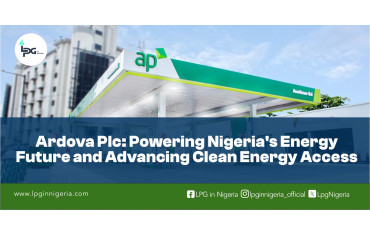
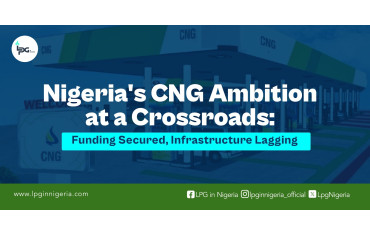
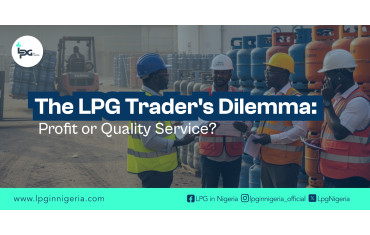

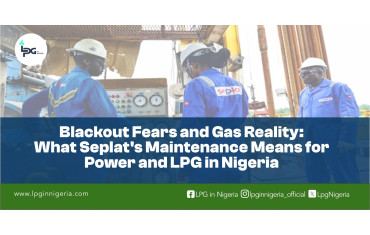
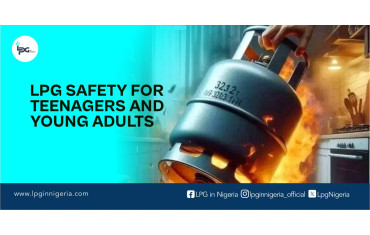





0 Comment.